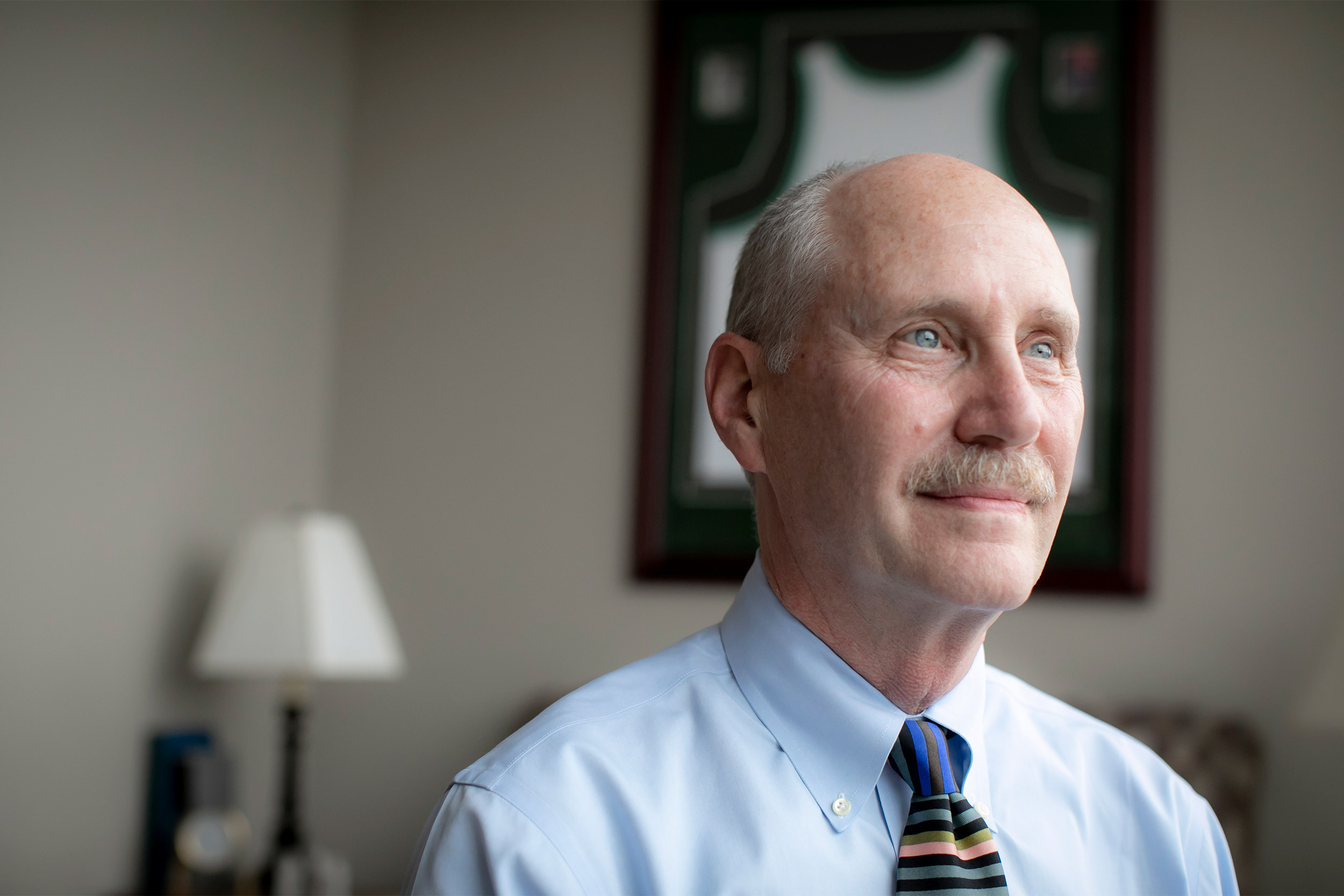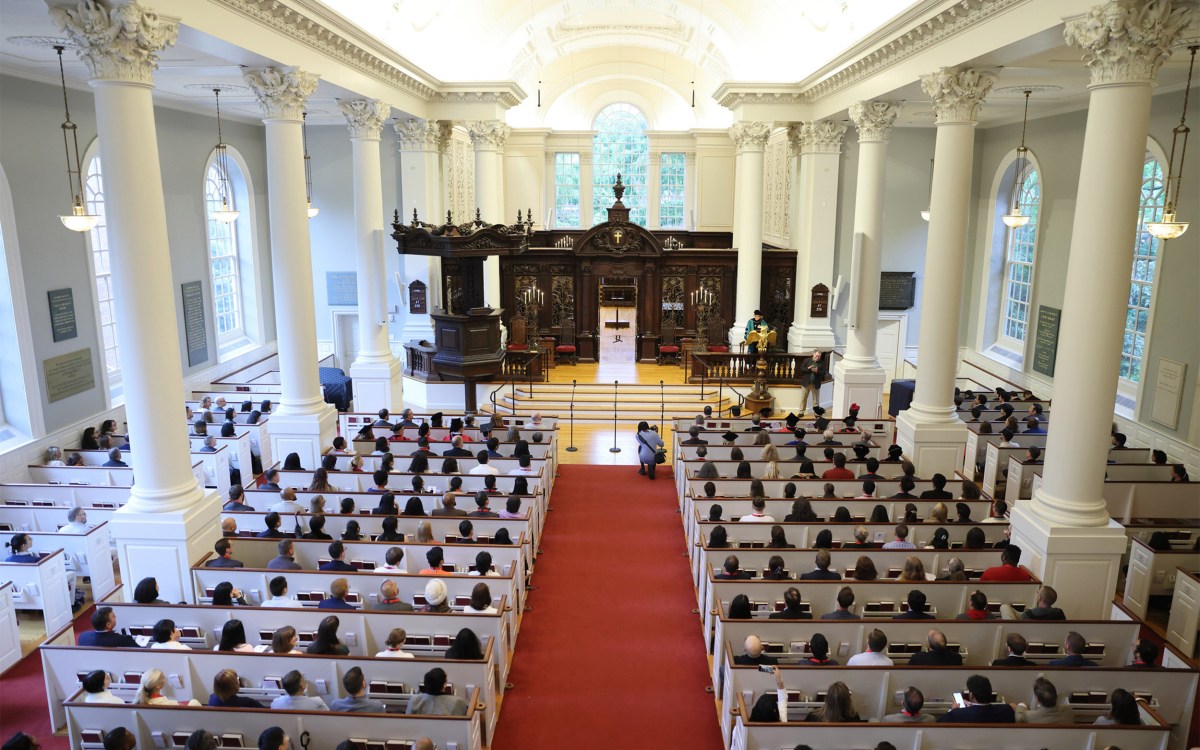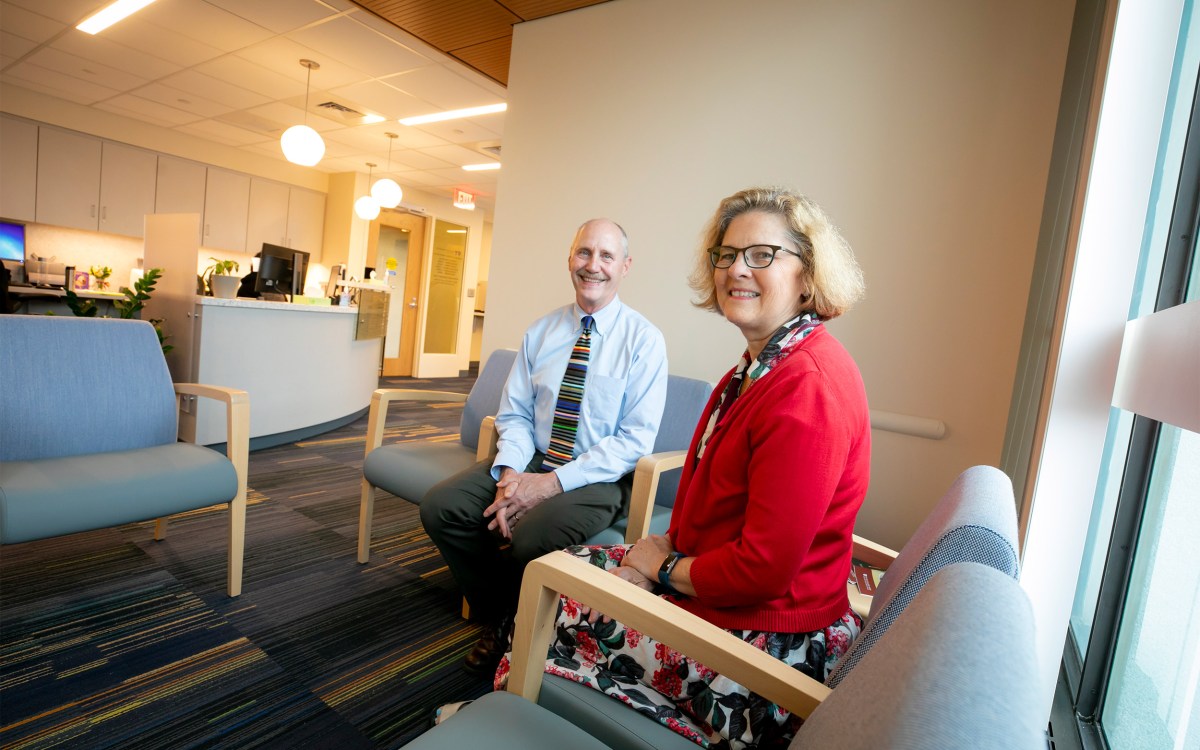
Paul Barreira ends his 15-year tenure at the helm of Harvard University Health Services on Nov. 18.
Rose Lincoln/Harvard file photo
Director of health services to step down
Paul Barreira dedicated 15 years to improving health and wellness at Harvard
After 15 years of service dedicated to improving health and wellness at Harvard, Paul Barreira will step down as director of Harvard University Health Services (HUHS), effective Nov. 18.
During his tenure, Barreira made significant strides in the advancement of HUHS’ mission to provide compassionate, high-quality care, and to support the health and well-being of Harvard’s diverse patient populations. Barreira addressed critical public-health concerns, remained committed to continual improvement in the health of Harvard’s students, and consistently applied forward-thinking approaches to deliver high-quality, compassionate care, leaving an indelible mark on the University.
“Paul Barreira has brought his deep and wide understanding of university health to Harvard,” said Faculty Dean Judy Palfrey, the T. Berry Brazelton Professor of Pediatrics at Harvard Medical School and the director of the Global Pediatrics Program for the Department of Medicine at the Children’s Hospital in Boston.
“The physical and mental health concerns of our students are central to their success in School and in life,” Palfrey said. “Paul has used the most up-to-date methods for administering a ‘medical home’ for students, monitoring their health and well-being with sophisticated survey methodology and introducing creative clinical innovations. He has been a marvelous colleague and his work will have a lasting effect here at Harvard and on the lives of the students he has cared for with such skill and true commitment.”
Under Barreira’s leadership, HUHS worked to address pressing public-health issues and their effects on the campus community. During his tenure, HUHS responded to the mumps outbreak of 2016, and developed a protocol to evaluate community members who returned to Harvard from Ebola-affected countries in 2014. Both of these initiatives are nationally recognized successes, with the Centers for Disease Control and Prevention (CDC) reviewing Harvard’s data and trends from the mumps outbreak to determine best ways to combat future outbreaks.
He also led the establishment of the Department of Health Promotion and Education, which offers a holistic approach to student health and wellness and includes the Office of Alcohol & Other Drug Services (AODS), the Center for Wellness, and the Office of Sexual Assault Prevention & Response (OSAPR), along with key contributors from HUHS in the areas of nursing, medicine, counseling and mental health, and nutrition.
Perhaps most notably, Barreira established several new student peer-education groups including: Harvard Drug and Alcohol Peer Advisors, a group of student advisers who serve both as health opinion leaders and resources for their peers; student mental health liaisons (SMHL); and HealthPALS, a team of student health care liaisons between HUHS and the campus community. He also created a student-run EMS service, CrimsonEMS, and initiated and designed surveys on health and mental health for College and graduate students to better understand the community landscape, and then build new initiatives to improve upon it.
“Dr. Barreira is a role model for the type of doctor, leader, and person I hope to be,” said Seth Cassel, M.D. ’13, M.D.-Ph.D. ’20. “My time working with him in the SMHL group was one of the absolute highlights of my College experience — his dedication to helping others and infectious energy are without equal.
“I always knew that whatever ideas we put forward to promote positive conversations surrounding mental health, he would be there to help us make them happen,” Cassel continued. “I was always impressed by how he balanced such a significant leadership role within the University while also staying in close touch with the student body. He knew every member of our group personally, was a mentor to essentially every SMHL, and even welcomed us to his home on the Cape for very memorable annual retreats.”
Barreira also recognized the importance of serving a particular population of Harvard community members — student athletes — streamlining the University’s services to add athletic trainers to HUHS staff and assigning mental health counselors specifically for athletics.
More like this
According to Harvard athletic director Bob Scalise, establishing “continuity of care” with HUHS was a “big deal” and made a significant impact in the care student athletes receive, in terms of physical and mental health and in nutrition designed to help them better perform on and off the field.
“Paul is thoughtful, open-minded, a terrific problem-solver, and he has a can-do attitude,” Scalise added.
Barreira also improved options for mental health care on campus, both in traditional clinical options and through a budding community-health model designed to meet students where they are. He created the Department Behavioral Health and Academic Counseling (BHAC) that previously oversaw the Bureau of Study Counsel, Counseling and Mental Health Services (CAMHS), AODS, OSAPR, and the Center for Wellness. Recently, CAMHS significantly increased its resources by adding an expanded and modernized space on the fourth floor of the Smith Campus Center, increasing its staff 25 percent since spring, and launching several initiatives to serve students better no matter where they are on campus, and ensure that programming responds to and reflects the diversity in the community. Barreira also established the Department of Behavioral Health to meet the needs of faculty and staff who seek care at HUHS.
Barreira worked with his leadership team to provide empathy training to the HUHS organization. He also led an effort to adopt a new style of team-based work, resulting in daily huddles in which teams identify and solve problems inside their own departments. One highlight of this has been the development of a Safety Reporting System team to ensure not only that those who experience safety events are formally responded to within seven days, but also that new protocols are created to prevent such events from happening again.
Barreira has a long-standing affiliation with Harvard and its teaching hospitals. He is the founder and former program director of Waverley Place at McLean Hospital, and has been a lecturer and preceptor to psychiatry residents there since 2000. He is currently a member of eight committees and advisory boards at the University.
A graduate of Boston College, magna cum laude, and Georgetown University Medical School, Barreira was recognized in 2010 as a Distinguished Fellow by the American Psychiatric Association. He has served as a member of the Massachusetts Association for Mental Health, the Massachusetts Psychiatric Society, and the National Association of Student Mental Health Program Directors. Prior to his work at HUHS, Barreira was director of community and public psychiatry for Partners HealthCare System in Boston. He has also served as deputy commissioner and medical director of the Massachusetts Department of Mental Health.
Barreira will remain at the University as the director of the Graduate Student Mental Health Initiative, where he will work with the Provost’s Office of Institutional Research. In this role, Barreira will continue to help the University improve its understanding and support of graduate and professional student health.





